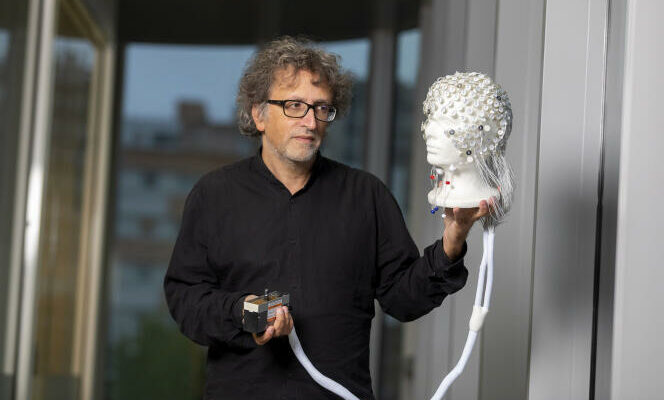“ You have the power to tame this anxiety by changing your behavior. You have the power to reprogram your brain », assures Anne-Hélène Clair, eloquent gestures and wireless microphone, to students at Essec Business School in June 2022. The speaker of this TEDx conference is not there for motivational coaching, but to talk about the effects cognitive-behavioral therapies on patients with obsessive-compulsive disorders – and draw a more general lesson about how we can, through experience, control certain fears.
Over the past ten years, cognitive neuroscience has conquered the general public, to the point where thought specialists are expected to help us understand our feelings, our relationship to work and to our family. Since September 2023, neurologist Lionel Naccache has hosted, every Friday morning on France Culture, a column on the mechanisms of memory, empathy or mental mapping. And in the wake of Your brain never ceases to amaze you (collective work, Albin Michel, 2012) or Your brain is playing tricks on youby Albert Moukheiber (Allary, 2019), general publishing houses are publishing more and more works promising to finally understand brain functioning…
In 2023, neurologists like Samah Karaki and Albert Moukheiber were even invited to give their vision of success and talent on the personal development podcast “InPower”, presented by the influencer MyBetterSelf. As for cognitive neuroscience researcher Jean-Philippe Lachaux, he suggests diving “in the brains of champions” (with a book to be published in May by Odile Jacob), to try to uncover the roots of their extraordinary attention and concentration capacities.
A “fantasmatic social use”
Educational sciences are also drawing on neuroscience to try to find the magic formula for the decline in the level of French students. In 2016, teacher Céline Alvarez became known throughout France with The natural laws of the child (Les Arènes, 2016), an essay inviting us to review school pedagogy, drawing inspiration from neuroscience. In 2018, Stanislas Dehaene, an eminent neuropsychologist specializing in mathematical representations and reading, was appointed president of the scientific council of national education.
This widespread fascination with the brain dates back to the 1980s in the Anglo-Saxon world. We are talking about “decade of the brain” in the 1990s, a period when US President George W. Bush called for “raise public awareness of the benefits of brain research”. In The Mechanics of Passions. Brain, behavior, society (Odile Jacob, 2018), sociologist Alain Ehrenberg questions “the great moral authority” given to cognitive neuroscience, well beyond their medical fields of application. At the heart of this fascination with the powers of the brain, a concept: cerebral plasticity, a notion formulated in 1969 by the British neurobiologist Geoffrey Raisman, which designates the capacity of the brain to create, undo or reorganize networks of neurons throughout the world. throughout life based on experience. According to Alain Ehrenberg, our company has made one “fantastical social use, according to which this biological characteristic of our brain would show our infinite capacities to change, corresponding to a strong collective aspiration, in a society where we are encouraged to constantly work on ourselves”.
You have 34.27% of this article left to read. The rest is reserved for subscribers.
